Learn All About Pelvic Organ Prolapse and the Role of Yoga in Recovery
Yoga can help manage pelvic organ prolapse, but there are also some poses, movements and breathing methods that could make the condition worse.


Explore our insightful blog articles on pelvic health, where we delve into essential topics that empower and educate. From understanding pelvic floor disorders to strategies for conquering infertility, our content is designed for those seeking knowledge and support. We discuss the latest research, expert advice, and practical tips to enhance your well-being and foster a deeper connection to your body.
Featured From the Blog:

There are many reasons why those born with female anatomy may require the use of a vulvovaginal moisturizer throughout their lifetime. As you age, the vaginal and vulvar tissues tend to become drier and less elastic. This change is typically seen around the time one goes through menopause due to the drop in estrogen that occurs. The vulvovaginal tissues are very sensitive to hormonal changes and estrogen is the hormone that controls vaginal lubrication, as well as tissue elasticity and thickness.
Read more: Vulvovaginal Moisturizers: Who Needs One & Choosing the...

These symptoms may be caused by a variety of gastrointestinal or pelvic conditions. If you are experiencing any of these symptoms, this article is a good place to start when deciding who to have on your care team, and what treatments can help!
Bloating is the sensation of excess abdominal gas or a feeling of being distended without obvious visible abdominal distension. Some people have a feeling of fullness or discomfort in the upper abdominal area. Abdominal distension is the visible increase in abdominal girth. A multidisciplinary treatment team of primary care physicians (PCPs), gastroenterologists, dieticians/ nutritionists, and physical therapists is ideal to help manage these symptoms and find the root cause. For example, symptoms of bloating and abdominal distension affect 66 - 90% diagnosed with IBS. Getting the proper diagnosis can help direct the best treatment options for you.
Read more: Why a Multidisciplinary Team is Best for Treatment of...
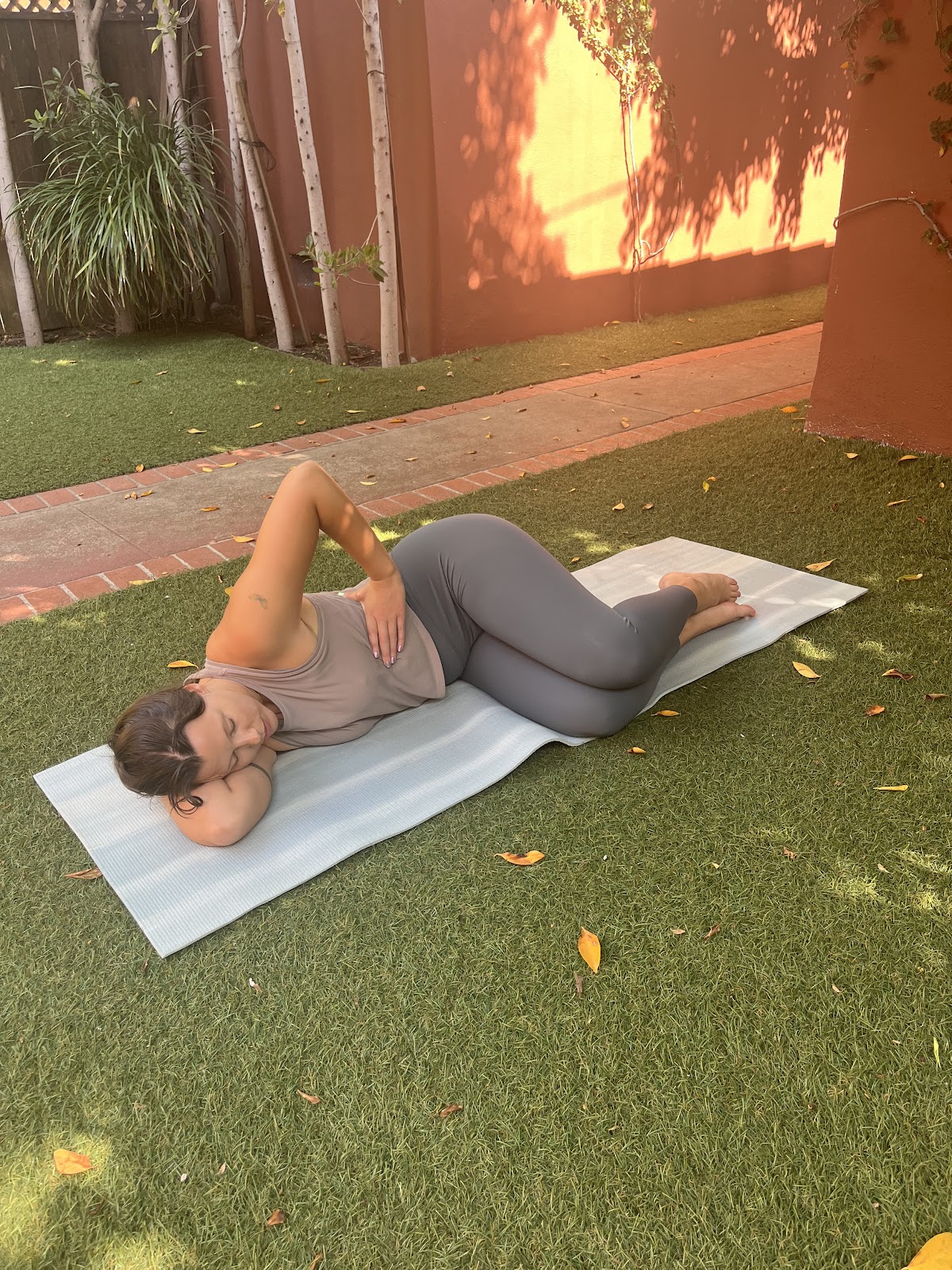
As stated in my last blog post, yoga can be so beneficial as a pain management tool due to its ability to modulate the sympathetic nervous system3,4 which plays a large role in chronic pain. The exact mechanism of how yoga helps with chronic pain is still being studied, however, it is reasonable to believe the full body relaxation promoted by a yoga practice helps to decrease tension in key muscle groups- including the hips and pelvic floor which are often tight in people with chronic pelvic pain.
Currently, evidence has mostly focused on one hour long practices as an intervention, although there are some studies that report improvements in pain with shorter practices, such as the routine below. As with any mobility/stretching routine, benefits will be seen with more frequent practice, however even twice weekly can help decrease pain.
Read more: Restorative 20 Minute Home Yoga Practice For Chronic...

With new year’s resolutions, a lot of us will be starting new workout routines to shape up. While exercise is a cornerstone of physical health, a little talked about side effect of increased athletic training, particularly for those with female anatomy, is urinary incontinence. A comprehensive literature review published March 2018 in International Urogynecology Journal found that female athletes have an increased the risk for urinary incontinence.
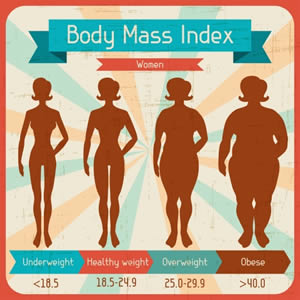
Urinary incontinence is the loss of bladder control. Urinary incontinence affects up to 1 in 3 women. The two most common types of urinary incontinence that affect women are stress incontinence and urge incontinence (also called overactive bladder, or OAB). Incontinence affects twice as many women as men. This may be because pregnancy, childbirth, and menopause are contributing factors to urinary incontinence. Urinary incontinence should not be considered a normal part of aging, and it can be treated.
A new article published in September, 2018 by Lamerton, Torquati, & Brown found that being overweight (BMI 25-30) increased risk of urinary incontinence for young and middle aged by 35% and obesity (BMI ≥30) almost doubles the risk at 95%.

Two recently published articles, in the International Urogynecology Journal and in Neurourology and Urodynamics talk about the positive outcomes of treatment with trained pelvic floor therapists. Today is a basic rundown of what kinds of credentials, training, and skills a pelvic floor physical therapist has to offer you.
Pelvic floor therapists are often physical therapists (PT), a discipline that requires academically rigorous coursework and covers topics from anatomy and kinesiology, to neuroscience, and the evaluation, treatment, and management of common diagnoses. They are also trained in a medical system, and are aware of "red flags" in signs and symptoms that patients may present with. These "red flags" will typically require additional medical referral to rule in or out (i.e. suspected masses, infection, etc).
You will often find a jumble of letters after your pelvic floor therapist’s name. Here is a breakdown of what those letters mean:
PT, MPT, MSPT, or DPT: These letters represent the degree that your pelvic floor physical therapist earned. For many years, physical therapists earned a bachelor's degree prior to becoming licensed. Later, schools transitioned to master's degree programs. The letters MPT or MSPT indicates a master's degree in physical therapy. Most programs today now train therapists for a DPT degree, which stands for doctorate of physical therapy.
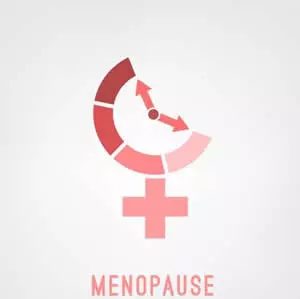
Menopause is a period of life transition for many of us. Today we will review what menopause is and how symptoms can negatively affect pelvic health, including bowel, bladder and sexual function.
Menopause is an important life transition for those with female anatomy, marking the end of the regular menstrual cycle and the transition to life beyond the reproductive period.
Babies born with female anatomy have a set number of eggs which are stored in their ovaries. The ovaries make the hormones estrogen and progesterone, which control monthly periods and ovulation. Menopause happens when ovaries no longer regularly release an egg every month and menstruation stops.
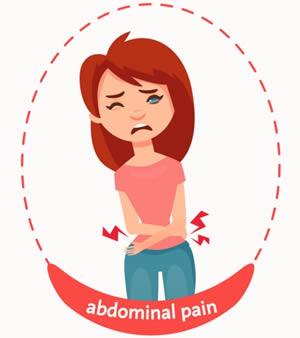
According to the American College of Obstetricians and Gynecologists, more than half of those who have periods suffer from “dysmenorrhea” (pain associated with their cycles) 1-2 days each month.
There are two main causes of the pain associated with menstruation:
Read more: Painful Periods Treatment Options | Can Pelvic Floor...

Tightly Wound has been released, watch it today and share it with your loved ones and anyone else who may need more education on vaginismus and pain with sex.
Tightly Wound is a 15-minute animated short by Shelby Hadden. Our very own Heather Jeffcoat, DPT is one of the producers of film.
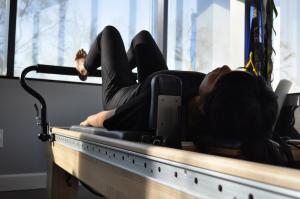
A modified Pilates program can be a fantastic way to improve the strength of the pelvic floor muscles. A 2018 study by Lausen et al. had clients attend weekly one-hour Pilates classes over the course of six weeks. These classes used a type of Modified Pilates which consisted of Pilates exercises which had been modified and led by a physical therapist to specifically target the pelvic floor for the management of urinary incontinence. Those who attended the Pilates classes reported less leakage, improved self-esteem, decreased social embarrassment and lower impact of incontinence. Some of the women also reported improvement in their personal relationships after attending the classes.
In another 2011 study by Phrompaet et al., researchers found Pilates to be an effective treatment for instability in the low back and pelvis, which is a common contributor to pelvic pain and pelvic floor dysfunction.
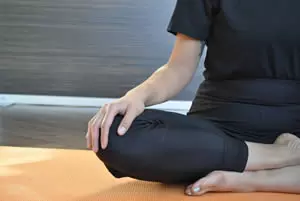
Yoga can help manage pelvic organ prolapse, but there are also some poses, movements and breathing methods that could make the condition worse.
"Prolapse" refers to a descending or drooping of organs. Pelvic organ prolapse (POP) refers to the prolapse or drooping of any of the pelvic floor organs, including: the bladder, uterus, vagina, small bowel, or rectum. These organs are said to prolapse if they descend into or outside of the vaginal canal or anus.
Read our previous blog for more information on prolapse and how pelvic floor therapy can help.
Yoga has been found to help women with urinary incontinence, but will it help with prolapse?
Page 27 of 31
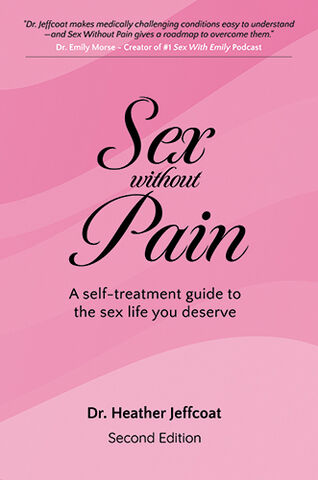
Haga clic aquí para la versión española Sex Without Pain: A Self-Treatment Guide To The Sex Life You Deserve was written by Heather Jeffcoat, DPT, a physical therapist with countless successes in treating pain of this type. Women with vaginismus, overactive pelvic floor, painful intercourse, vulvodynia, vulvar vestibulitis, vestibulodynia, dyspareunia, interstitial cystitis have all benefited from her unique program. Heather uses her orthopedic background to approach treatment of these muscles like they are....muscles! She utilizes a self-treatment tool called a dilator to provide massage and other muscle relaxation and stretching techniques in a gentle fashion to return a women's muscles back to a resting, rather than guarded, state.
• To order "Sex Without Pain" in paperback from Amazon for $24.99, click here.
• To order an electronic read-only non-printable PDF copy of the book for instant download at $19.99, use the button below:
• To schedule an appointment at one of the Femina PT offices, click here.
• For a list of other trusted health care providers, click here.
I was in multiple car accidents a decade ago, and I have been to many physical therapists through the years without success. They found the root of my lower back pain problems and after nearly a decade of barely being able to walk I finally can again without pain. They are also the best pelvic floor pts and the only ones who found the connection between my pelvic floor and lower back problems. If you need help with physical pain, they are your answer. -- Jackie W.,...
I was hopeful but frankly skeptical when the doctor treating me for Interstitial Cystitis recommended that I go to Heather for physical therapy. Medication and diet helped control my IC symptoms, but I had never heard of physical therapy being used to treat IC. The education and treatment I received from Heather was a revelation. She explained that the pain I experienced with IC had helped create a cycle of muscle guarding which affected the entire pelvic area. I had no...
Femina PT (née Fusion Wellness & Physical Therapy) has been such an answer to prayer, i'm so glad I found them! I've been struggling with vaginismus my whole life, but didn't have a name for it until about 6 or 7 months ago. Even once I did have a name for it though, I didn't know where to begin in getting help. My OB/GYN had me get a set of dilators, but I couldn't even insert the smallest one by myself. Most times I tried I just ended up frustrated and in tears. I...

Like what you are seeing so far? Register for our mailing list and receive periodic updates via email, a 15% discount code for the "Sex Without Pain" ebook, and instant access to our Downloads area!